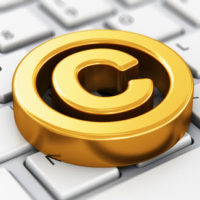President Trump Signs the Music Modernization Act Into Law

On October 11th, 2018, President Donald Trump signed the Music Modernization Act into law. The legislation — which received overwhelming bipartisan support in Congress — is designed to reform American copyright law to better account for digital streaming. In this article, our top-rated Miami copyright litigation attorneys highlight three of the most important things that you should know about the Music Modernization Act.
- The New Law Makes it Easier for Copyright Holders to Be Paid for Streaming
One of the primary goals of the Music Modernization Act is to make the United States Copyright Act more functional in a world where a huge percentage of people listen to music largely through online streaming services. According to data provided by Recode, streaming makes up more than 60 percent of the music business. That number is only expected to grow more in the coming years. Under the system that is being phased out, copyright holders often have a difficult time getting fair market value for the streaming of their music. The legislation creates a new entity — funded by the big streaming services — that will grant blanket licenses for musical works to all participating digital music companies. It will then allow the mechanical royalty rates to adjust on an open market. The goal is to promote a more functional and efficient system.
- The Bill Provides Enhanced Rights to the Producers of Songs
As part of the overall package signed by President Trump, the Allocation for Music Producers (AMP) Act will also become law. This legislation creates a much easier path to royalty payments for music producers and engineers. They will get quicker access to their royalty payments when songs are played on digital radio. To be clear, the AMP Act does not create new rights for producers and engineers, it simply provides them direct access to royalties. Previously, they generally had to get royalties through the individual artists.
- The Legislation Grants Rights to Pre-1972 Songwriters and Performers
Finally, this copyright law reform package also includes the passage of the Compensating Legacy Artists for their Songs, Service, & Important Contributions to Society (CLASSICS) Act. Under this part of the bill, pre-1972 recordings will be entitled to copyright protection in regards to digital audio transmission. This is a major change. Under current federal copyright law, recordings made prior to 1972 are not entitled to protection. Slowly these older recordings will enter the public domain for the purposes of digital transmission. The process will begin in a few years, with all recordings from prior to 1923 entering the public domain first.
Speak to a Florida Copyright Lawyer Today
Copyright law is notoriously complex. If you are involved in any type of copyright dispute, you need to be ready to seek professional legal representation. At Pike & Lustig, LLP, our skilled South Florida copyright litigation attorneys have the skills and experience to protect your rights. With office locations in West Palm Beach, Miami, and Palm Beach Gardens, we are here to assist you.
Resources:
congress.gov/bill/115th-congress/senate-bill/2823/text?q=%7B%22search%22%3A%5B%22music+modernization+act%22%5D%7D&r=2
recode.net/2017/9/20/16339484/music-streaming-riaa-spotify-apple-music-youtube-2017-revenue-subscription



